
Lauren B. Alloy, Ph.D.
Principal Investigator, Temple Mood and Cognition Lab
Professor of Psychology and Neuroscience, Temple University
(215) 204-7326
lalloy@temple.edu
Faculty Webpage | Curriculum Vitae
Lauren B. Alloy, Ph.D. is the Laura H. Carnell Professor of Psychology & Neuroscience and Joseph Wolpe Distinguished Faculty in Psychology & Neuroscience at Temple University. Dr. Alloy is an internationally recognized researcher in mood disorders. Her research focuses on cognitive, psychosocial, affective, developmental, and neurobiological processes in the onset and course of depression and bipolar disorder in adolescents and young adults and has been funded by the National Institute of Mental Health for over 30 years.
Along with many colleagues such as Drs. Lyn Abramson and Robin Nusslock, Dr. Alloy is known for research on the “sadder but wiser” effect, the hopelessness theory of depression, the reward hypersensitivity and integrated reward/circadian rhythm theories of bipolar disorder, and an integrated cognitive/inflammation model of depression. She is the author of over 400 scholarly publications and has been in the Top 1% of Most Cited Authors in Psychology. She is a Fellow of APA, APS, ABCT, and APPA. Dr. Alloy has received multiple awards for her research: the 1984 American Psychological Association (APA) Young Psychologist Award, the 2002 APA Master Lecturer Award in Psychopathology, the 2001 Temple University Paul W. Eberman Faculty Research Award, the 2003 APA Division 12 Distinguished Scientific Contribution Award, the 2003 Society for a Science of Clinical Psychology (SSCP) Distinguished Scientist Award, the 2009 Association for Psychological Science (APS) James McKeen Catell Award for Lifetime Achievement in Applied Psychological Research, the 2014 Society for Research in Psychopathology (SRP) Joseph Zubin Award for Lifetime Achievement in Psychopathology Research, the 2014 Association for Behavioral and Cognitive Therapies (ABCT) Career/Lifetime Achievement Award, and the 2017 Temple University Faculty Research Award. She also has won three major mentorship awards: the 2018 SRP John Neale Outstanding Mentor Award, the 2021 SSCP Lawrence H. Cohen Outstanding Mentor Award, and the 2022 APA Division 12 Toy Caldwell-Colbert Award for Distinguished Educator in Clinical Psychology.
Mentoring and career development is one of Dr. Alloy’s most important and valued professional activities and she devotes large amounts of time to her students. Her success in mentoring is revealed by the stellar achievements and successful careers of her current and former students, colloquially known as “Alloy’s Angels.”

Logan Smith, M.A.
PhD Student
Logan joined the Mood and Cognition Lab as a graduate student in the Fall of 2020. He earned an associate’s degree from a local community college in 2016. From 2016-2018, he worked in a lab at UNC-CH under the mentorship of Dr. Eric Youngstrom and developed interests in research and clinical psychology. After graduation, Logan worked on several research studies with longitudinal cohorts at an academic medical center. Throughout this time Logan also worked with the nonprofit Helping Give Away Psychological Science (HGAPS; hgaps.org), which is an organization focused on dissemination of high-quality information about psychology. Logan’s past research interests and projects have focused on mood/affect and measurement, and he hopes to develop and diversify these interests while in the lab.

Zoe Adogli, M.A.
PhD Student
Zoe joined the Mood and Cognition Lab as a graduate student in the Fall of 2021. She is an international student from France and came to the U.S. to pursue a degree in Clinical Psychology. She is passionate about the neurobiology of mood disorders, particularly about the effects of early life adversity on brain reward processes. Zoe previously worked in two labs at the New York State Psychiatric Institute. She volunteered at the Neural Circuits lab under the direction of Dr. Atsak and investigated the effects of early life stress on anhedonia. In parallel, she volunteered at the Global Psychiatric Epidemiology Group under the direction of Dr. Hoven, which investigated the effects of poor sleep quality on psychopathology. In her free time, she enjoys puzzles and taking long walks with her pup. Zoe is committed to helping further understand how adversity in childhood contributes to the onset of depression and related risk factors.
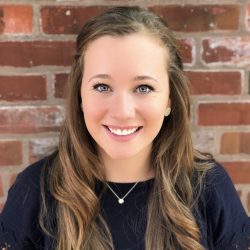
Auburn Stephenson, M.A.
PhD Student

Mackenzie Maddox, B.S.
PhD Student
Mackenzie joined the Mood and Cognition lab as a graduate student in the Fall of 2022. She received her B.S. in Psychology with a minor in Biology from Southwestern University in 2019 where she worked in a Health Psychology lab studying the effects of emotion regulation on cortisol levels. Mackenzie then completed her research postbaccalaureate at the University of California, Berkeley in the CALM lab under the direction of Dr. Sheri Johnson where she explored the dynamic relationships between emotion-related impulsivity and internalizing symptoms. Under the additional mentorship of Dr. Lance Kriegsfeld, Mackenzie began to explore the connections between circadian biology and mood disorders, specifically assessing how these rhythms differ between clinical and non-clinical groups. Mackenzie hopes to continue studying these patterns of sleep and activity when predicting high-risk populations for bipolar spectrum disorders. In her free time, she enjoys finding new restaurants to try, drinking too much coffee, and traveling with friends!

Jiana Schnabel, B.S.
PhD Student
Jiana started at Temple as a graduate student in the fall of 2022. She graduated from Tufts University in 2020 with a B.S. in Psychology and Economics. Following graduation, she worked in the Biological Psychiatry Laboratory at McLean Hospital under Drs. James Hudson, Harrison Pope Jr., and Brian Brennan. There, she was the study coordinator of two industry-sponsored drug trials, one for patients with Major Depressive Disorder and the other for those with Binge Eating Disorder. She also assisted in a neuroimaging study that examined whether long-term anabolic-androgenic steroid abuse in males increases their risk for early cognitive decline or dementia. Jiana’s time at McLean sparked her interest in studying the neurobiology of mood and eating disorders; her current research interests include examining the role of neurocognition and reward system processing in the onset and maintenance of mood and eating disorders. In her free time, Jiana enjoys running, spending time outdoors, and checking out all of Philly’s fantastic coffee shops and restaurants!
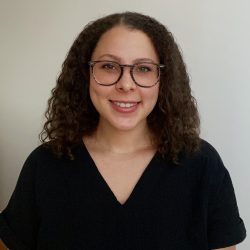
Felicia Petterway, B.A.
PhD Student
Felicia joined the Mood and Cognition Lab as a graduate student in the Fall of 2023. Felicia received her B.A. in Public Health Studies and Psychology from Johns Hopkins University in 2020, where her research focused on predictors of eating disorder treatment outcomes. She then completed a postbaccalaureate research fellowship at Massachusetts General Hospital (MGH), where she explored neural, endocrine, and immune correlates of internalizing psychopathology. While at MGH, she also coordinated a clinical trial investigating the effects of estrogen replacement on cognitive flexibility and reward responsiveness in adolescents and young women with hypothalamic amenorrhea. Felicia is interested in investigating the neuroimmune mechanisms that link chronic stress exposure and the onset of mood disorders during adolescence. In her free time, Felicia enjoys spending time with her family, baking, mentoring budding research scientists, and catching up on the latest reality TV dramas.

Kayla Baresich, B.S.
PhD Student
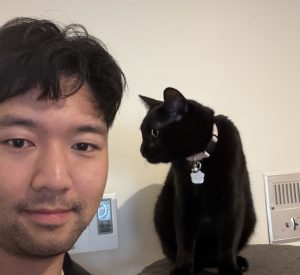
Shawn Wang, B.S.
PhD Student
Shawn joined the Mood and Cognition Lab as a graduate student in the fall of 2024. Originally from northern California, he graduated from UCLA in 2021 with a degree in Psychology. While he was there, he worked on substance abuse treatment projects at the UCLA Integrated Substance Abuse Programs with Dr Kate Wolitzky-Taylor as well as studied the role of spiritual connection in coping with stress with Dr Ted Robles. After graduation, he began working in the UCLA Anxiety and Depression Research Center with Dr Michelle Craske coordinating treatment projects examining a positive affect intervention targeting anhedonia as well as a decoded neuro-reinforcement treatment for animal phobia. Shawn is interested in taking a multimodal approach to understanding reward and reward dysfunction as a transdiagnostic mechanism as well as improving methods for reward measurement. And when not in the lab, Shawn enjoys spending time at Costco, using his sous vide, and browsing SSENSE.
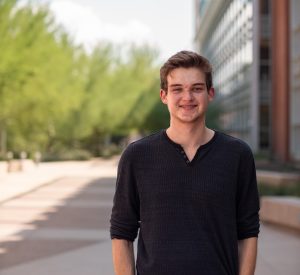
Kevin Trent, B.S.
PhD Student
Kevin joined the Mood and Cognition lab as a graduate student in the fall of 2025. He received his B.S. in Psychology with a minor in Philosophy from Arizona State University in 2023, where he worked in the Adolescent Stress and Emotion lab and for the Arizona Twin Project. After graduating, Kevin spent two years as a full-time research technician for an NIH-funded study of depression and emotion regulation at Washington University in St. Louis. Kevin is interested in examining how cognitive vulnerability and peripheral biological mechanisms confer risk for internalizing disorders. In his free time, Kevin enjoys spending time with friends and family, playing chess, gaming, and exploring Philly.
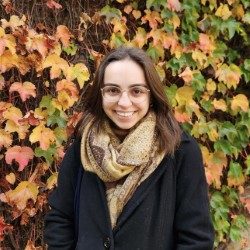
Olivia Bishop, B.A.
Research Assistant
olivia.bishop@temple.edu

Eric Cruz-Mendez, B.A.
Research Assistant
eric.cruz-mendez@temple.edu
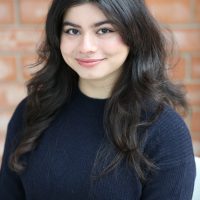
Vidhi Channa
Cal nguyen

Alivia Jenkins
Zhania Edwards
Liliane Hassinger

Vanishka Shah


Jaelyn Bolden

April Harwood

Lyn Y. Abramson, Ph.D. – U. of Wisconsin, Madison
Jason Chein, Ph.D. – Temple University
Christopher Coe, Ph.D. – U. of Wisconsin, Madison
Lauren Ellman, Ph.D. – Temple University
Namni Goel, Ph.D. – Rush University
Michael McCloskey, Ph.D. – Temple University
Gregory E. Miller, Ph.D. – Northwestern University
Robin Nusslock, Ph.D. – Northwestern University
Thomas Olino, Ph.D. – Temple University
Graduate Students
Iris Chat
Mora Grehl
Rachel Walsh
Undergraduate RAs
Emilie Capra
Taylor Fulmer
Yuliana Fartachuk
Alba Ferko
Grace Keesey



